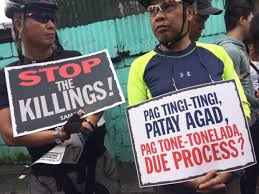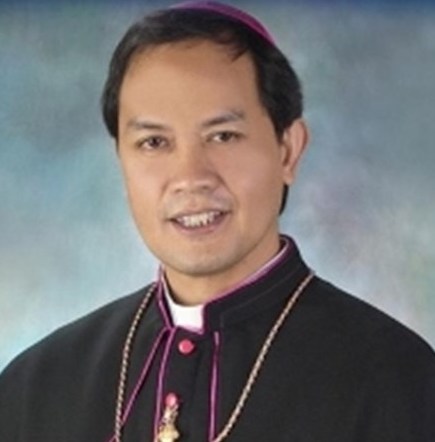NEW YORK—There seems to be a turn in public opinion against the Philippine government’s brutal and inhumane war on drugs. It is, as I have said in previous columns and as others have noted as well, really a war on the poor, the marginalized, and has nothing to do with the drug supply side. If the seizure of shabu that somehow managed to make its way through the Bureau of Customs is any indication, this particular drug is still available.
And more than a year after President Duterte announced that he would fill Manila Bay with the corpses of drug pushers and addicts, have any drug kingpins been seized? Not a single one.
More voices are now being raised in protest against these senseless killings. Let me quote a few of them:
- Pablo Virgilio David, bishop of Caloocan City, a diocese of 1.6 million Catholics and where 19-year-old Carl Angelo Arnaiz and 17-year-old Kian Lloyd delos Santos were shot to death by Caloocan police: “We are a nation of laws. We have due process. It’s like we are killing our democracy.” The bishop went on to say, “You cannot get rid of criminality in an equally criminal way,” adding, “Civil liberties in this country have not been suspended. Knock and plead, negotiate. [But] don’t enter because you don’t have a search warrant. Don’t arrest, because you don’t have an arrest warrant.”
Even if Arnaiz had indeed attempted to rob a taxi driver, the fact that he was turned in to the Caloocan police by the driver and bystanders who subdued him, as it now transpires, there was absolutely no reason to shoot him. The driver, Tomas Bagcal, testified, in Filipino, that after he turned Arnaiz in, the Caloocan policemen instructed him to follow them and the suspect to the scene of the attempted robbery. Then the suspect was shot, causing Bagcal to flee, abandoning his taxi. Now under the protection of Rise Up for Life and Rights, a local human rights group, Bagcal says that he witnessed the suspect falling to the ground, adding, “It seems the killing was scripted.”
Particularly galling and rife with irony is the fact that two days after Kian delos Santos was killed, the Caloocan City police were cited by the National Capital Regional Police Office as one of Metropolitan Manila’s best police departments.
- Luis Cardinal Antonio Tagle, Archbishop of Manila: “With pain and horror we continue to get daily news of killings around the country. We cannot allow the destruction of lives to become normal. We cannot govern the country by killing.”
- Hope Hervilla, the government’s own Department of Social Welfare and Development’s undersecretary: “This culture of impunity should not be tolerated, especially now that the targets are children and young Filipinos. What does it say about our society that we are allowing our children to fall victim to brutal killings, at the hands of individuals who have no respect whatsoever for human rights, much less the rights of children?”
- New York-based Human Right Watch’s deputy director Phelim Kine: “The apparent willingness of the Philippine police to deliberately target children for execution marks an appalling new level of depravity in this so-called drug war. These killings demonstrate that Duterte’s rejection of the rule of law has made all Filipinos potential ‘drug war’ victims, no matter how young.” The tally of minors killed by the police is now at 54.
- Eduardo Gabriel, father of 14-year-old Reynaldo “Kulot” Gabriel, a friend of Arnaiz and whose body was found floating in a creek in the province of Nueva Ecija, his head wrapped in packing tape and his body marked with 31 stab wounds, speaking in Filipino: “The police are sons of bitches. They act as if they do not have children or parents. That will also happen to their children. They should be hanged.”
The administration and Philippine National Police Director General Roland dela Rosa have described these deaths as “collateral damage”—somehow hoping to whitewash these killings of their heinousness. One can somewhat understand collateral damage in situations where, say, a bomb is dropped in an area where the enemy is hiding, and civilians die as a result.
Such is not the case here. These teenagers didn’t have to die. The war on drugs has got to stop. Now.
Then again a president who lauds a dead dictator as a hero, whose centenary birth was celebrated on September 11, 2017, seems to lack the moral compass—and compassion—to do so. Coincidentally this 9/11 also marked the 16th anniversary of the terrorist attacks on the World Trade Center towers.
A date that marks two disasters: one for the planet, and one for the benighted Republic of the Philippines.
Copyright L.H. Francia 2017









